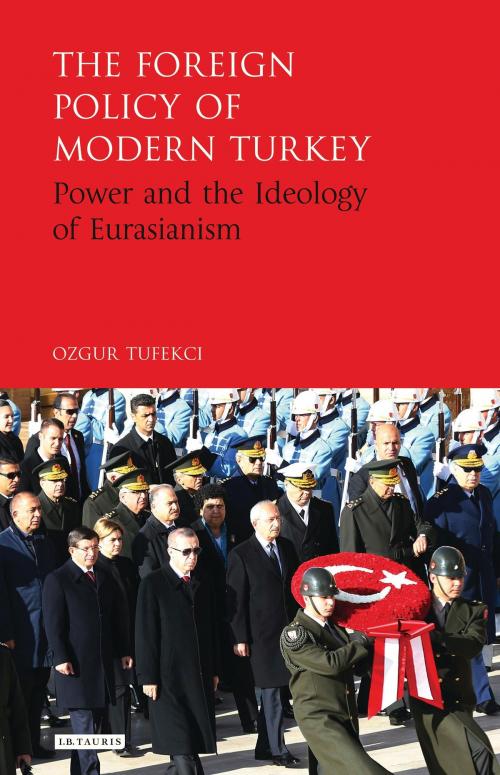The Foreign Policy of Modern Turkey
Power and the Ideology of Eurasianism
Nonfiction, Social & Cultural Studies, Political Science, Social Science, History| Author: | Ozgur Tufekci | ISBN: | 9781786721174 |
| Publisher: | Bloomsbury Publishing | Publication: | January 30, 2017 |
| Imprint: | I.B. Tauris | Language: | English |
| Author: | Ozgur Tufekci |
| ISBN: | 9781786721174 |
| Publisher: | Bloomsbury Publishing |
| Publication: | January 30, 2017 |
| Imprint: | I.B. Tauris |
| Language: | English |
In the last three decades, Turkey has attempted to build close relationships with Russia, Iran and the Turkic World. As a result, there has been ongoing debate about the extent to which Turkey's international relations axis is shifting eastwards. Ozgur Tufekci argues that Eurasianist ideology has been fundamental to Turkish foreign policy and continues to have influence today. The author first explores the historical roots of Eurasianism in the 19th century, comparing this to Neo-Eurasianism and Pan-Slavism. The Özal era (1983-1993), the Cem era (1997-2002) and Davuto?lu era (since 2003) are then examined to reveal how foreign policy making has been informed by discourses of Eurasianism, and how Eurasianist ideas were implemented through internal and external socio-economic and political factors.
In the last three decades, Turkey has attempted to build close relationships with Russia, Iran and the Turkic World. As a result, there has been ongoing debate about the extent to which Turkey's international relations axis is shifting eastwards. Ozgur Tufekci argues that Eurasianist ideology has been fundamental to Turkish foreign policy and continues to have influence today. The author first explores the historical roots of Eurasianism in the 19th century, comparing this to Neo-Eurasianism and Pan-Slavism. The Özal era (1983-1993), the Cem era (1997-2002) and Davuto?lu era (since 2003) are then examined to reveal how foreign policy making has been informed by discourses of Eurasianism, and how Eurasianist ideas were implemented through internal and external socio-economic and political factors.















